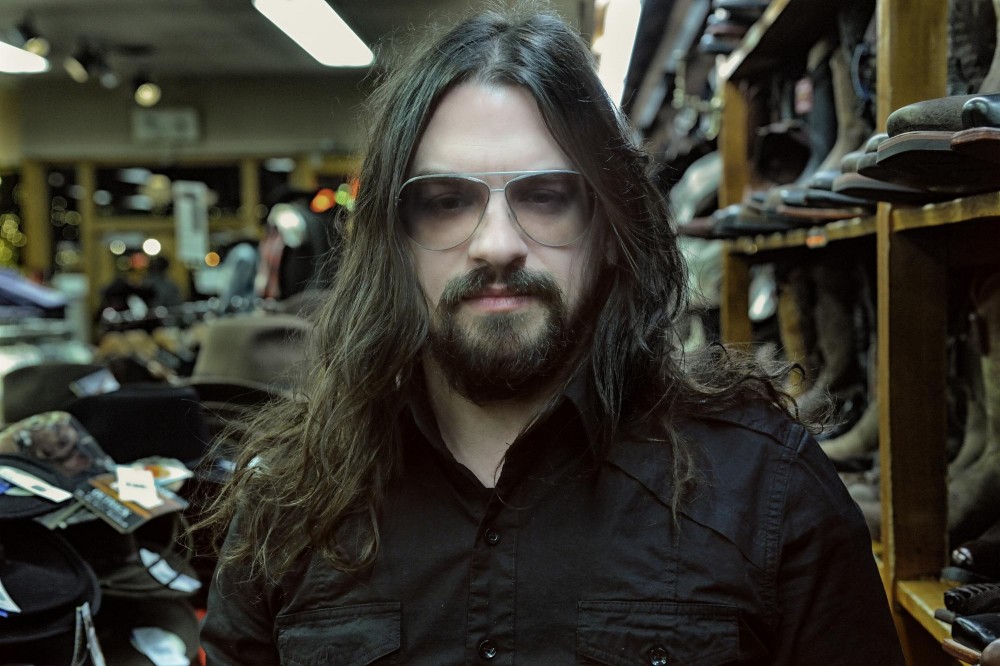What: Shooter Jennings w/Cody Canada and the Departed
Where: The Cabooze 917 Cedar Ave. S Minneapolis
When: Wednesday, March 28th
Price: $20-22
Shooter Jennings, son of the infamous outlaw musician Waylon Jennings, is bringing his brand of rocked-out Americana to The Cabooze next Wednesday to promote his new record, “Family Man.” A&E caught up with the genre-busting artist as he relaxed for a day before hitting the road.
How’s it feel to have the new album out?
It feels great. It’s been done for like a year now and we’ve just been sitting on it, so it feels great to finally get it out. Every new record is like adding a floor on a house or something; I always just want it to be done — like sitting on a secret. But now finally we’re off to the races.
You’re about to start your tour in promotion of the album, and you’re coming up to the Twin Cities on the 28th. When’s the last time you were up here?
I’m trying to think the last time I was up there … Oh yeah, we were on a road trip with my family moving from L.A. to New York and we took the northern route, ended up staying for a night at a hotel near the airport. When I came out in the morning, it turned out someone had stolen the tires off of my car. It was brutal. They called us at like eight in the morning, and they were like, “Yeah, uh, had some trouble with your vehicle last evening…”
I’m sorry that my city has poorly represented itself to you…
No way, man, I love your city though; shows in Minneapolis are absolutely wild. I don’t know what it is about you guys, but I feel like you really just go crazy at shows.
You designed a video game based on your 2009 album “Black Ribbons,” have you always been into computers?
Yeah, I’ve always been a huge geek. Actually, when I was a kid I really wanted to design computer games — I was always playing them. I made the “Black Ribbons” game on Flash, and it felt awesome to put it all together and kind of model it after the games I’d played as a kid.
So if you wanted to be a game designer when you were young, does that mean that you were maybe forced into music a little bit by your family legacy?
You know, computers and music have always gone together for me since I was listening to Nine Inch Nails as a kid. I loved computers, and to see Trent Reznor putting together raw, gorgeous music with just a piano and drums and computer, that was really where I started doing the music thing.
So as a recording artist AND a nerd, how do you feel about SOPA and PIPA and the like?
I hate ’em, man! Totally against them. I think that they are going to wreck the Internet. If you look at it, the Internet was originally built on college campuses by normal guys who wanted to connect people. It’s one of the last free places left on earth, and here the government is trying to come in and surveil us as we use it. I hear they are developing unmanned drones that can collect I.P. server addresses over international waters — it’s all backwards. I know that there are watchdog groups out looking for people pirating music and movies, and I understand that because the movie and music industries are crumbling. But if you look close, it seems like those people are mostly just out for the money, and it’s got to be about more than that. I don’t think that the government will ever be able to control the Internet or govern it, but they will sure as hell try to surveil everything you do on it …
A lot of these ideas appear on “Black Ribbons,” most notably the concept of police states and undue surveillance — do you feel like making music is your best way to fight back against these issues?
Absolutely, I think that art is incredibly important — you look at World War II and all the incredible stuff that was being created then, the Expressionism and everything. It’s the same as now, there’s a culture of suppression we live in. That album was incredibly important to me because I got to say all the things that I had in my head — got to tell about the oppression and limitations we’re submitted to. And it was funny because some people came up to me and told me it was the greatest thing they’d ever heard, and other people were like, “Dang, Shooter, I didn’t really get that new rock album you made!”
All right, one final question, from nerd to nerd — what was it like to work with Stephen King?
It was like working with a ghost, man. I never saw the guy and I never heard his voice, we were just exchanging emails and then suddenly *boom!* he’d recorded the part and sent it to me. It was trippy, it was eerie and it was perfect.








